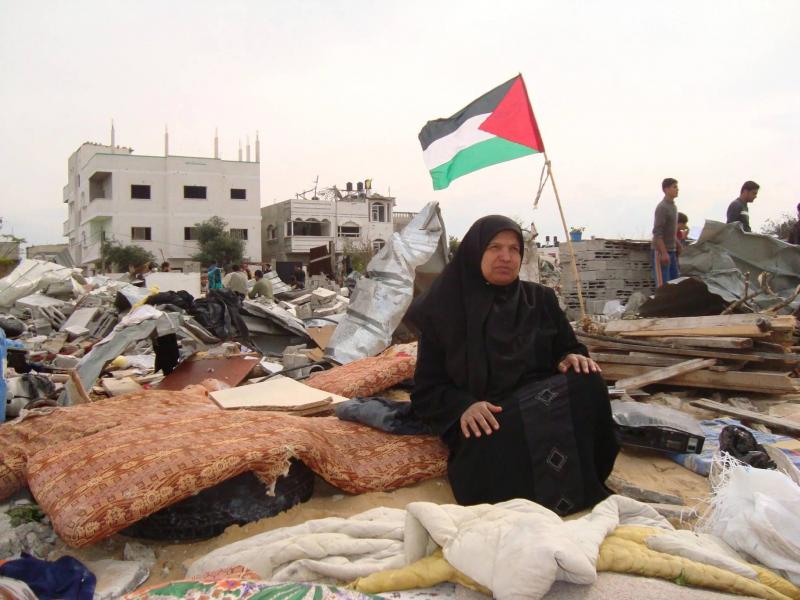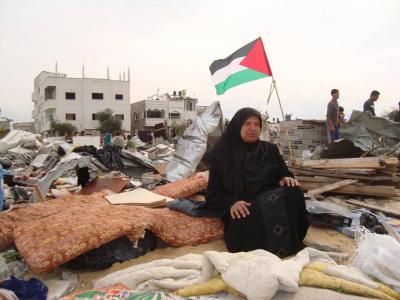Residents of Gaza are struggling to find their loved ones as they hear news of family members being killed, while communications began to gradually return to the enclave on Sunday after a near-complete blackout due to the incursion of Israeli forces and armored vehicles. The United Nations has indicated that Palestinians are in urgent need of food supplies and the public order is on the verge of collapse after three weeks of war with militants from the Islamic Resistance Movement (Hamas) and a blockade on the densely populated coastal enclave.
Shaban Ahmed, a government employee and father of five, described the Israeli attacks as resembling "Judgment Day." Ahmed decided to stay in Gaza City despite Israeli warnings to evacuate the northern areas and head south. He stated in comments to Reuters that he discovered on Sunday morning that one of his relatives was killed in an airstrike on his home on Friday. He added, "We only found out today. Israel cut us off from the world to wipe us out, but we hear the sounds of explosions and we are proud that the resistance has stopped them (Israeli forces)."
The chief spokesperson for the Israeli army refused to confirm whether Israel was responsible for cutting communications but stated that it would do what is necessary to protect its forces. Ahmed noted that the Israeli strikes from air, sea, and land on Friday lasted for hours without cessation. Hamas stated on Sunday that it continues to confront Israeli forces that are conducting ground operations. The Gaza Health Ministry reported on Sunday that 8,005 Palestinians have been killed in the enclave since October 7.
As the humanitarian crisis in Gaza worsens, Palestinians are finding it difficult to locate their loved ones amid the bloody chaos. A woman screamed while searching for one of her children among the rubble in Gaza City, "I don't know where he is." Many Gazans remain near radios to listen for news, which has become the only available means of obtaining information about the most intense Israeli airstrikes ever experienced in the enclave, coupled with outages of internet and phone services. The Gaza Strip is one of the most densely populated areas in the world.
Medical services are in such a dire state that ambulances have stopped responding to calls. People affected by the bombardment are relying on volunteers to transport them for medical treatment. Israel is focusing its airstrikes on areas in northern Gaza, including Gaza City, where ground incursions are taking place. Residents in southern Gaza heard explosions and saw the sky illuminated by airstrikes but had no means to reassure their families and friends in targeted areas.
Um Yahya, a resident of Gaza who moved south after Israeli warnings, is now sheltering inside Nasser Hospital in Khan Younis. She said, "Gaza is isolated from the rest of the world. The strikes are nearby and around us, and no one can reach us or identify the location of the strike." Aid supplies directed to Gaza have been halted since Israel began bombing the Palestinian enclave in response to Hamas attacks. Relief organizations have also been affected by communication outages, leading to severe shortages of food, fuel, and medicine.
The United Nations Relief and Works Agency (UNRWA) appealed to the world on Sunday, stating that thousands of Gaza residents stormed its warehouses and distribution centers to seize flour and "basic foodstuffs." The UN agency added in a statement, "This is a worrying sign that the general civil order is beginning to collapse after three weeks of war and stringent blockade on Gaza."
UNRWA has indicated that its capacity to assist people in Gaza has been severely reduced due to airstrikes that have killed more than 50 of its staff and restricted the movement of supplies. An Israeli official stated today that Israel would allow a significant increase in the aid directed to Gaza in the coming days and repeated calls to Palestinian civilians to move to what it described as a "humanitarian" area in the south of the enclave.
Kholoud Qadi’ah and 20 members of her family are now living in the basement of a building in Khan Younis in southern Gaza. They previously lived with other relatives near the border with Israel before moving deeper into the city. Kholoud remains resilient despite losing a son in a previous war in Gaza. She said, "We will remain on our land steadfast even if they come in with tanks. We will remain steadfast no matter what happens... We will not make the mistake of our ancestors who left in 1948. We will always stay in our homeland."
Palestinians in Gaza say the intensity of the Israeli bombardment is so severe they feel they are living through "Nakba," referring to the 1948 war that led to the establishment of Israel and their subsequent displacement.




